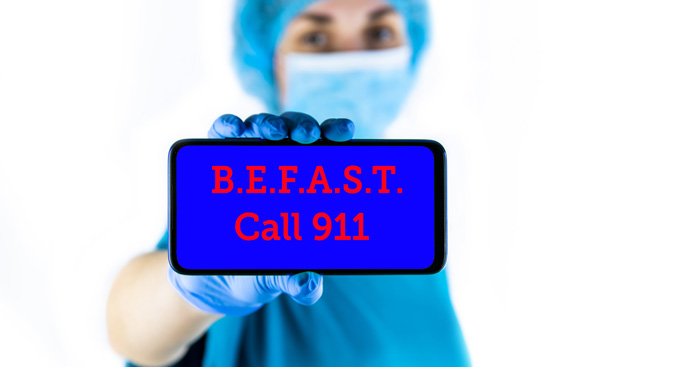- Community & News
- Neurology
- Patient Stories
- Service Line
Strokes: Know the Signs and Call 911

Getting the right care in a timely manner is important for many medical emergencies. In the event that you or a loved one suffers a stroke, time is especially critical.
“In the event of a stroke, a delay of only fifteen minutes in treatment greatly decreases your chances not only of making a full recovery, but also being able to walk or live independently, and in many cases, of survival,” says Christopher Zammit MD, a critical care specialist and emergency physician with TriHealth, which offers a network of certified stroke hospitals and emergency departments including a Certified Comprehensive Stroke Center at Good Samaritan Hospital.
What Is a Stroke?
A stroke occurs when blood flow to a part of the brain stops due to either blockage from a blood clot (ischemic stroke) or a blood vessel bursting in the brain (hemorrhagic stroke). When blood flow is stopped, the brain tissue does not get enough blood and oxygen to survive. Brain cells can die, causing permanent damage that can impair abilities such as walking, speaking, writing, typing and other activities or in many cases, it can lead to death.
During those critical moments when the blood flow is stopped, it’s vital for doctors to be able to identify the type and cause of a stroke as soon as possible to allow them to administer the proper treatment,” says Dr. Zammit. “That’s why it’s important for people to be able to quickly recognize the signs of a stroke and act immediately.”
Signs of a Stroke: BEFAST
In order to determine if you or a loved one is experiencing a stroke, follow the BEFAST method:
- Balance - Watch for a sudden loss of balance, coordination, or ability to walk steadily.
- Eyes - Is there a sudden loss of vision in one or both eyes? Or double vision?
- Face - Ask the person to smile. Does one side of the face droop?
- Arms - Ask the person to raise both arms. Does one arm drift downward or are they unable to lift it up?
- Speech - Ask the person to repeat a simple phrase. Does the speech sound slurred or strange?
- Time - If you observe any of these signs, it's time to call 911.
Recognize the Signs? Call 911
If you or a loved one experiences these signs, Dr. Zammit reiterates the importance of getting to the hospital as quickly as possible and offers a simple reminder.
“Call 911 immediately,” he urges. “We’ve seen patients delay their care due to indecision over whether or not the signs are real or whether or not to drive themselves to the Emergency Department. There is no faster or safer way to get to the hospital than by calling 911 and by doing so, you often give first responders a chance to accelerate your treatment, not only in the ambulance, but also at the hospital by mobilizing nurses, physicians, and other resources prior to your arrival. What may seem like only a few minutes can mean everything in the event of a stroke,” he adds. “I can’t stress enough how important it is to call 911.”
Related Articles
- Community & News
- Service Line
- Community & News
- Neurology
- Patient Stories
- Service Line
- Treatments
- Women's Health